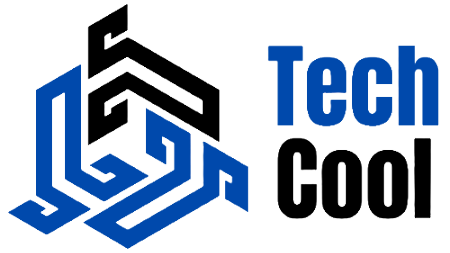Blockchain technology has emerged as a transformative force, revolutionizing industries, and reshaping the digital landscape. In this comprehensive guide, we delve into the latest developments in blockchain, from innovations in decentralized finance to advancements in supply chain management and beyond.
1. Introduction to Blockchain Developments
Blockchain technology, originally conceived as the underlying technology for cryptocurrencies like Bitcoin, has evolved into a versatile platform with far-reaching applications. By providing a decentralized and immutable ledger, blockchain enables secure and transparent transactions, data management, and decentralized applications (dApps). The latest developments in blockchain promise to revolutionize industries, streamline processes, and enhance trust and transparency in digital interactions.
2. Decentralized Finance (DeFi): Democratizing Finance
Decentralized finance (DeFi) represents one of the most significant developments in the blockchain space, offering an alternative to traditional financial systems by leveraging blockchain technology to provide open, transparent, and permissionless financial services. DeFi platforms enable users to access a wide range of financial products and services, including lending, borrowing, trading, and asset management, without the need for intermediaries such as banks or brokerage firms. The latest innovations in DeFi include yield farming, liquidity mining, decentralized exchanges (DEXs), and algorithmic stablecoins, driving unprecedented growth and adoption in the decentralized finance ecosystem.
3. Non-Fungible Tokens (NFTs): Redefining Digital Ownership
Non-fungible tokens (NFTs) have captured the imagination of creators, collectors, and investors worldwide, offering a novel way to tokenize and trade digital assets with unique ownership properties. NFTs represent digital or physical assets such as art, music, videos, virtual real estate, and collectibles on blockchain networks, enabling provenance tracking, authenticity verification, and transparent ownership transfer. The latest developments in NFTs include cross-chain interoperability, fractional ownership, and enhanced metadata standards, expanding the possibilities for digital ownership and monetization in the digital economy.
4. Enterprise Blockchain Solutions: Streamlining Business Processes
Enterprises are increasingly embracing blockchain technology to streamline business processes, enhance efficiency, and reduce costs across various industries. Enterprise blockchain solutions offer secure and transparent data sharing, real-time transaction settlement, and automated workflows, enabling organizations to optimize supply chain management, streamline identity verification, and enhance customer engagement. The latest developments in enterprise blockchain solutions include interoperable networks, cross-border payments, and blockchain-as-a-service (BaaS) platforms, empowering organizations to harness the full potential of blockchain technology for digital transformation.
5. Sustainability and Green Blockchain Solutions
As concerns over the environmental impact of blockchain technology continue to grow, developers and innovators are exploring sustainable and eco-friendly solutions to mitigate energy consumption and carbon emissions associated with blockchain networks. Green blockchain initiatives focus on optimizing consensus mechanisms, reducing energy-intensive mining operations, and promoting renewable energy sources for blockchain infrastructure. The latest developments in green blockchain solutions include proof-of-stake (PoS) consensus algorithms, energy-efficient consensus protocols, and carbon offset programs, paving the way for a more sustainable and environmentally conscious blockchain ecosystem.
6. Interoperability and Cross-Chain Solutions
Interoperability has emerged as a critical challenge in the blockchain space, as different blockchain networks often operate in isolation, hindering seamless data exchange and interoperability between decentralized applications. Interoperability solutions aim to bridge the gap between disparate blockchain networks, enabling cross-chain communication, asset transfers, and interoperable dApps. The latest developments in interoperability include blockchain bridges, interoperability protocols, and cross-chain asset swaps, facilitating frictionless interaction and collaboration between diverse blockchain ecosystems.
7. Decentralized Identity and Digital Sovereignty
Decentralized identity solutions offer individuals greater control over their personal data and digital identities, enabling self-sovereign identity management and authentication without relying on centralized authorities or intermediaries. Blockchain-based identity systems provide secure and verifiable digital credentials, enabling individuals to prove their identity, credentials, and attributes without compromising privacy or security. The latest developments in decentralized identity include decentralized identity standards, verifiable credentials, and identity management platforms, empowering individuals to assert their digital sovereignty and protect their privacy rights in an increasingly digital world.
8. Supply Chain Traceability and Transparency
Blockchain technology has the potential to revolutionize supply chain management by providing transparent and immutable records of product origin, provenance, and movement throughout the supply chain. Blockchain-based supply chain solutions enable enhanced traceability, transparency, and accountability, reducing the risk of fraud, counterfeiting, and supply chain disruptions. The latest developments in supply chain blockchain solutions include track-and-trace platforms, smart contracts for automated supply chain management, and integration with Internet of Things (IoT) devices for real-time data monitoring, ensuring end-to-end visibility and integrity in supply chain operations.
9. Regulatory Compliance and Governance
As blockchain technology continues to mature, regulatory compliance and governance have become increasingly important considerations for blockchain projects and platforms. Regulatory compliance frameworks aim to ensure legal and regulatory compliance with existing laws and regulations governing financial transactions, data privacy, and consumer protection. The latest developments in regulatory compliance and governance include regulatory sandbox programs, industry standards and best practices, and collaboration between regulators and industry stakeholders to foster innovation while ensuring consumer protection and market integrity.
10. Education and Awareness Initiatives
Education and awareness initiatives play a crucial role in driving adoption and understanding of blockchain technology among businesses, governments, and the general public. Educational programs, workshops, and online resources provide valuable insights into blockchain fundamentals, use cases, and best practices, empowering individuals and organizations
to make informed decisions about adopting blockchain solutions. The latest developments in education and awareness initiatives include academic research, industry partnerships, and public awareness campaigns to promote blockchain literacy and foster a culture of innovation and collaboration in the blockchain ecosystem.
FAQs (Frequently Asked Questions)
Q: What is blockchain technology, and how does it work?
A: Blockchain technology is a distributed ledger technology that enables secure and transparent recording of transactions across a network of computers. Each transaction is recorded in a block and linked together in a chain, forming an immutable record of transactions that cannot be altered or tampered with.
Q: What are some common use cases for blockchain technology?
A: Common use cases for blockchain technology include cryptocurrencies and digital assets, supply chain management, decentralized finance (DeFi), non-fungible tokens (NFTs), identity management, and voting systems, among others.
Q: What are the potential benefits of blockchain technology?
A: Blockchain technology offers several potential benefits, including enhanced security, transparency, efficiency, and trust in digital transactions, reduced costs and intermediaries, improved traceability and provenance, and greater control over personal data and digital assets.
Conclusion
The latest developments in blockchain technology hold the promise of revolutionizing industries, transforming business processes, and reshaping the digital landscape. From decentralized finance and non-fungible tokens to enterprise blockchain solutions and sustainable initiatives, blockchain continues to push the boundaries of innovation and unlock new opportunities for economic growth and social impact. As blockchain technology matures and adoption continues to expand, it is essential to address challenges such as scalability, interoperability, regulatory compliance, and environmental sustainability to realize the full potential of blockchain for the benefit of society. By staying informed about the latest developments and trends in blockchain, stakeholders can navigate the evolving blockchain ecosystem and harness its transformative power to create a more inclusive, transparent, and decentralized future.


